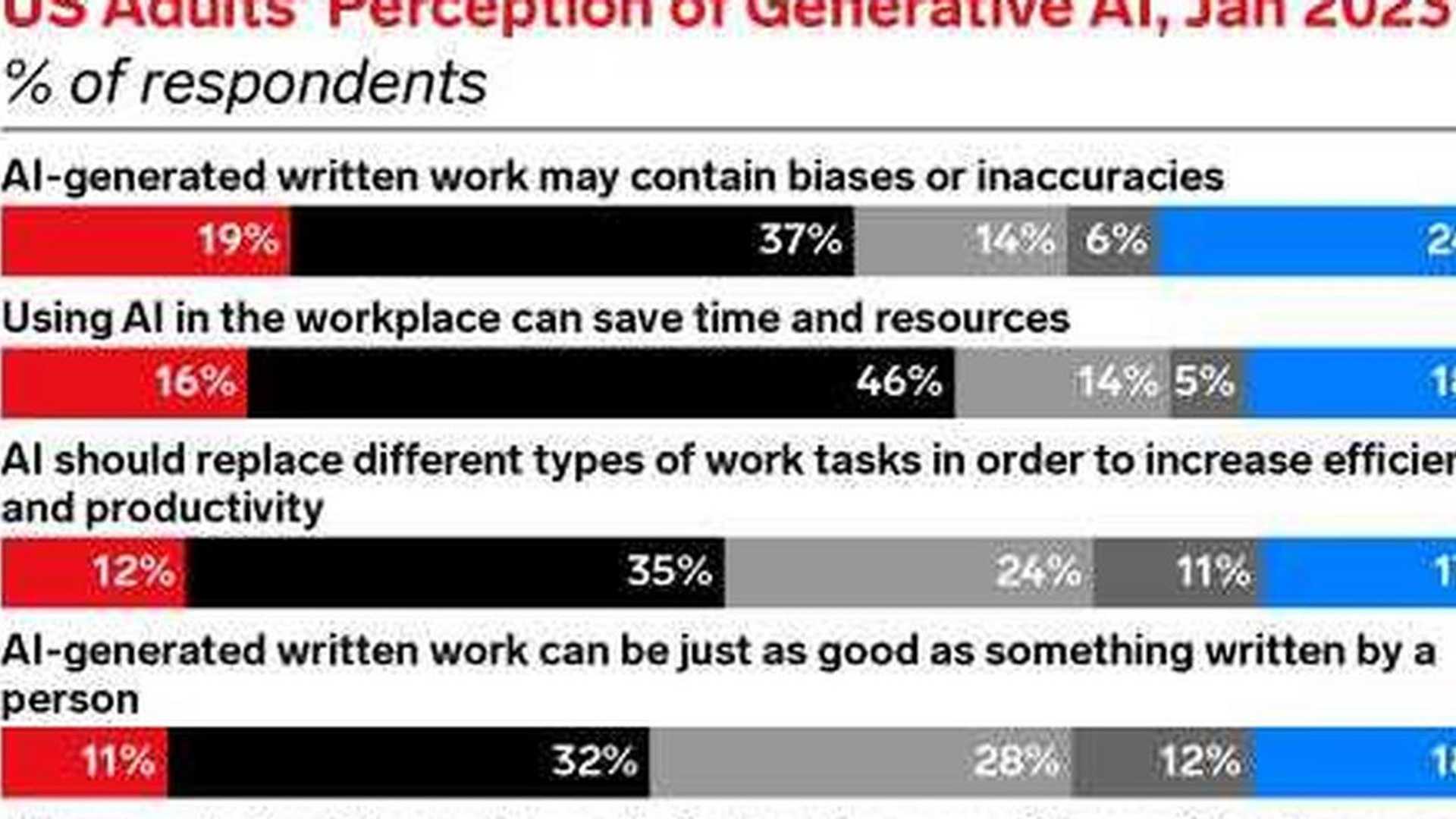ChatGPT and Generative AI in Media and Advertising
Generative AI technology has already started playing a significant role in the media and advertising industries. As more and more businesses try to combat burnout, Generative AI has emerged as an effective tool for low-risk functions such as mockups and copywriting. However, the prevailing concern among users is the reliability of AI-generated content. According to a survey, only one-fifth of US adults believe that AI-generated content may not contain errors, which is holding back the widespread adoption of this technology.
Despite initial skepticism, Generative AI has the potential to revolutionize the media and marketing industry. It could help lessen the need for intermediate agencies as platforms could use generative AI technology to create business ads themselves. With technology that can summarize reporting and synthesize press releases, publishers could soon see their relationships with search engines ending. Additionally, Generative AI could reshape the economics of search advertising with its definitive responses to search queries.
However, the US public is still largely unaware of generative AI and mistrustful of its output. According to a survey, just 30% of US adults have heard or read anything about ChatGPT, and only 10% regard its output as "very trustworthy". As such, the most promising use cases for Generative AI are likely to be found in providing raw material, eliminating the need for advertiser A/B tests, helping new brands increase output, and keeping those in the industry abreast of all the notable developments.
While Generative AI can effortlessly produce content that is clear, engaging, and grammatically correct, it can also be frequently filled with factual inaccuracies and biases. As such, if advertisers choose to publish ads or content created entirely by this technology, it can lead to disastrous outcomes as consumers don't fully trust AI-generated content.
Despite the prevailing negative sentiment around AI, 52% of consumers believe that generative AI technology will stick around. To prepare for the AI-driven future, marketers and advertisers should plan to watch consumer adoption closely, think about how assets and data could be used to train AI, and prepare for a steep learning curve.




















